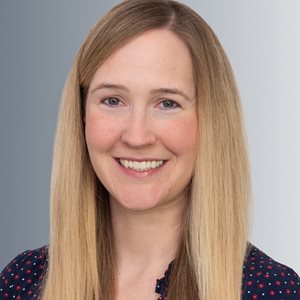CLE Panel Offers Insight Into Charlottesville Case
August 10, 2020
On August 6, the D.C. Bar CLE Program hosted the virtual panel “Taking Violent White Supremacy to Court: The Charlottesville Case,” featuring the attorneys representing the plaintiffs in Sines v. Kessler. The case, which stems from the August 2017 Unite the Right rally in Charlottesville, Virginia, is scheduled to go to trial October 26.
The program was moderated by Amy Spitalnick, executive director of Integrity First for America (IFA), and included as panelists Michael L. Bloch and Roberta A. Kaplan, counsel and partner, respectively, at Kaplan Hecker & Fink LLP, and Jessica Phillips, partner at Paul, Weiss, Rifkind, Wharton & Garrison LLP.
Kaplan said she had opened her firm just days before the rally. “I was very concerned at that point in time that the Civil rights Division of the [U.S.] Department of Justice, then headed by Attorney General Jeff Sessions, was probably not going to be super-devoted to investigating and bringing a case. So, I thought, ’If that’s not going to happen, other lawyers need to do it,’” Kaplan said.
Kaplan recalled a 1990s case involving the Nuremberg Files website that posted the names, addresses, and photographs (marked with a red X) of doctors across the country who performed abortions; some of those doctors were injured or murdered.
The civil lawsuit that followed argued that the website incited violence against the doctors and violated the Violence Against Women Act. The case went up to the Ninth Circuit court twice, but in the end, the court sustained a very large verdict against the organizations responsible for the website, resulting in a reduction of heavy violence against abortion providers. "I thought we could do something similar," said Kaplan.
Plaintiffs in Sines v. Kessler, which seeks to take on the leadership of the violent white supremacist movement, are invoking the Ku Klux Klan Act of 1871. “What emerged pretty quickly in terms of the evidence basis was that [there] was in fact a very well-planned, carefully orchestrated conspiracy among the organizers of the rally to commit violence against racial and religious minorities as well as their supporters,” Bloch said.
Many of the defendants, Bloch said, have raised the First Amendment as a defense and also argued that the violence was ignited by the counter-protestors. That defense was dismissed by U.S. District Judge Norman K. Moon in Virginia two years ago.
“It’s important to note that our case is really not a First Amendment case. We’ve been very careful in the complaint, court pleadings, and any other presentations to make sure that we are focusing exclusively on conduct that is not protected by the First Amendment,” Bloch said. “There was certainly communication that occurred in planning a racially violent conspiracy, which is not protected by the First Amendment.”
Bloch explained that hateful speech, slogans, chants, and flags used by the organizers of the Unite the Right rally by themselves are indeed protected by the First Amendment, but the violence committed by the organizers is not.
 Phillips said that for months prior to the rally, many of the defendants were chatting on various online communication platforms, most notably the social media site Discord. Within Discord, the defendants set up a server called “Charlottesville 2.0,” a name noting a previous Unite the Right rally in May 2017 that contained tactics similar to the August 2017 demonstrations.
Phillips said that for months prior to the rally, many of the defendants were chatting on various online communication platforms, most notably the social media site Discord. Within Discord, the defendants set up a server called “Charlottesville 2.0,” a name noting a previous Unite the Right rally in May 2017 that contained tactics similar to the August 2017 demonstrations.
Charlottesville 2.0 told participants where to meet, what type of clothes to wear, and the kind of military march formation to follow. According to Phillips, the website’s discussion board contained chat messages specifically outlining potential violent acts against counter-protestors, including driving vehicles through the crowd.
“We got a really good break,” Kaplan said of the hacking of the Discord servers. “We had pre-complaint discovery. We had an enormous treasure trove of their messages to each other, back and forth, leading up to Charlottesville. In order to determine who to sue, we very carefully reviewed those messages to try to identify the leaders. We didn’t want the rank and file; we didn’t want people who just showed up in Charlottesville. What we wanted were the leaders.”
Kaplan said the reason the case has taken so long is because the civil legal system doesn’t work that well when there are parties who are essentially contemptuous of the court process. “Many, if not all, of the defendants refused to comply with our point of discovery requests,” she said.
Bloch said his legal team had started taking some in-person depositions before the coronavirus pandemic hit. “Around April, we decided that if we wanted this case to move forward — in particular, keep our trial date in October — we needed to shift to virtual depositions, which we did over the course of the last two months,” he said. “There is obviously something helpful about being able to sit in a room, look someone in the eye, and process their body language, but given the technology for virtual depositions, I don’t think we lost anything at all.”
Meanwhile, Spitalnick said the IFA is supporting the legal effort because “it’s critical to Charlottesville and to our plaintiffs, who deserve justice and accountability after the horrors they lived through three years ago. And it’s critical because of the precedent it will set if we win this trial.”





